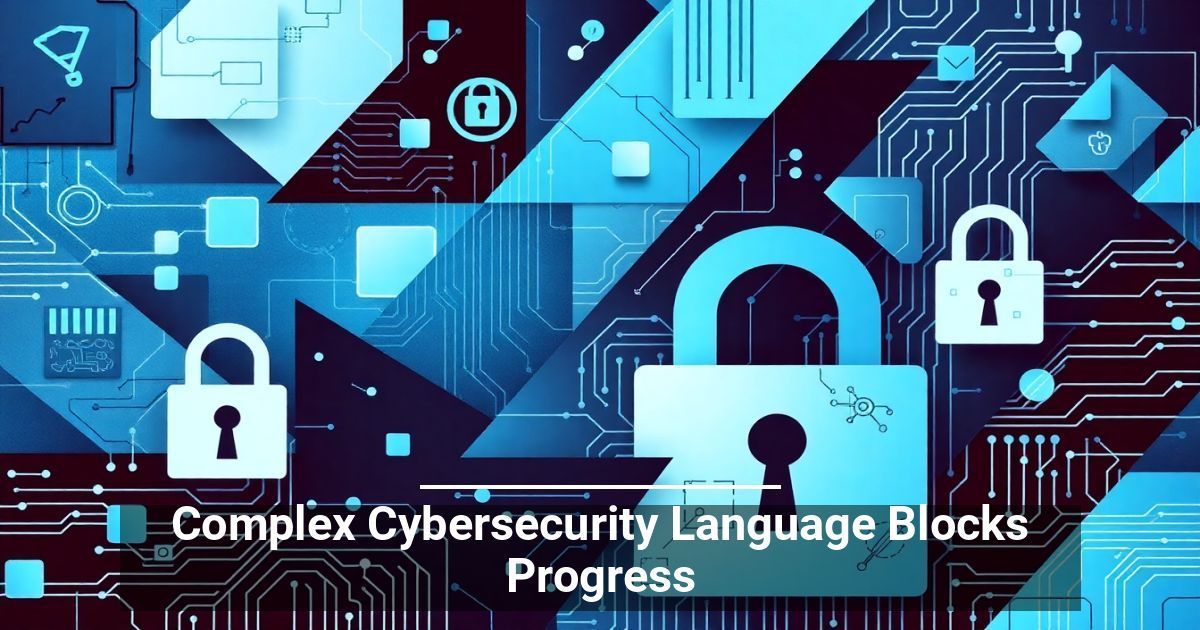Blog
Complex Cybersecurity Language Blocks Progress
By Mersad • February 14, 2025

Why does talking about cybersecurity feel like decoding another language? Obscure terms can leave even the most tech-savvy professionals scratching their heads.
Business owners need to take action before their operations take a hit. Keep reading to learn more.
Communication Problems Across the Board
Acronyms slow down communication and create gaps in understanding. For example, saying “MFA” instead of “multi-factor authentication” might leave someone with a different professional background feeling lost.
This problem affects security teams and other departments, creating roadblocks for decision-makers. A study by Accenture reveals that 44% of executives surveyed do not prioritize cybersecurity.
What’s the main cause? The confusing language used in this field. You can’t request more funding by telling the board to prioritize “zero-day vulnerabilities” or “SOC” without clarifying their meaning.
Overcoming the Language Barrier
Miscommunication doesn’t have to become the industry norm. These small, practical steps can help bring everyone onto the same page:
- Use plain language: Break technical terms into simple, everyday words. For example, you may want to rephrase “We need a static application security tester” to something like “We need a tool to check our software for weaknesses.”
- Define acronyms: Acronyms help everyday work move faster, yes, but they can also confuse people. Always spell them out at least once in discussions or documents.
- Hold regular cross-team discussions: Uneven communication between departments can create unnecessary delays. Regular check-ins can fix this.
- Create a glossary: Even experienced specialists might have varying definitions for the same terms. Educational background or job roles influence how people understand certain phrases, so having a shared guideline can work wonders.
Does your company have a communication department? They can collaborate with the IT team to create a more comprehensive library of texts, infographics, videos, and other educational resources.
Further Simplifying Cybersecurity Goals
With a solid knowledge base, developers and security specialists can better focus on these key areas while relaying their work to others efficiently:
- Source code security: This covers everything that makes up a program. Writing a tight code with encryption helps prevent vulnerabilities from the start.
- Runtime application security: Attackers will try to find vulnerabilities in your crucial software. Techniques like fuzzing (gauging an application’s integrity by sending unexpected data) and dynamic testing help catch those weaknesses.
- Cloud infrastructure security: More businesses are moving to the cloud for speed and flexibility, but this shift also brings new risks. Misconfigurations and access issues are common problems here.
- Supply chain security: Broader networks that include dependencies, third-party elements, and open-source components demand extra care. Thoroughly vet partner organizations and tools.
The Business Impact of Simplified Cybersecurity Terminology
Clear communication is the glue that holds teams together. Without it, you’ll be more vulnerable to phishing, malware attacks, and other dangers. With it, you’ll foster cross-departmental collaboration for more effective responses to such threats if and when they occur.
Start building a culture of proactive cybersecurity to strengthen your compliance with industry regulations, increase employee well-being, and instill trust in clients. That’s a win-win.
Related Posts



Contact Information
1035 Medina Rd, Suite #800
Medina, OH 44256



